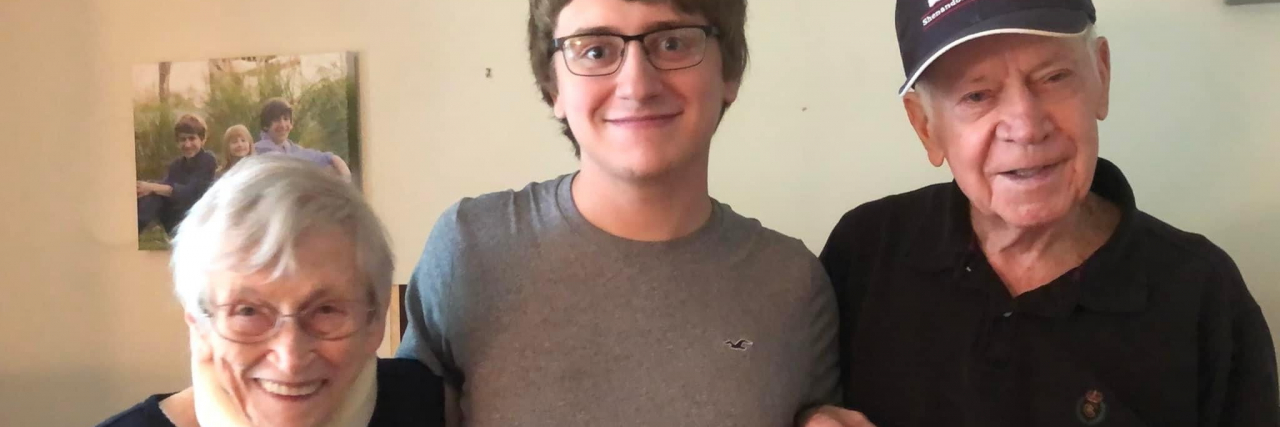Why My Autistic Son Is Able to Fearlessly Discuss Death
Editor's Note
This story has been published with permission from the author’s son.
A doctor friend of mine, who is from India, said to me years ago how difficult it is for most people to talk about death, especially in our American culture. According to him, death is seen and discussed much more openly in his country.
My parents’ health — especially my father’s — is declining rapidly. My father is 91 years old and has lived a mostly healthy, good life — for which I am beyond grateful. So many don’t receive the gift of time. However, at this stage of my father’s life, time now no longer seems like a gift. It seems like an obstacle keeping him from entering this last phase of life: death.
This past week, my 20-year-old autistic son and I discussed his Pappy and how hard these past few weeks have been for him. I asked Ryan if he thought it was cold for me to say that I hope Pappy’s time in this stage is brief. My son, the always logical, always honest one, said, “What?! No, of course not. Death is a part of life. We all are born, so we all are going to die. I don’t know why people are so afraid to talk about death. I plan to take an anthropology class on death and dying because it’s as much a part of life as living, so why not understand it better?”
“Why not?” indeed.
My son — who so often struggles to communicate his feelings or engage in small talk — is frequently the person whose words best hit the mark. Perhaps in another life, Ryan was raised in another culture where discussing death and dying isn’t so taboo, or perhaps he is just unafraid to discuss subjects that make most of us uncomfortable. My son became my teacher many, many years ago and I know as my family prepares for the next phase of life with my parents, I feel certain his words will not only provide me with wisdom, but will also be a great source of comfort for me.
Image via contributor.

